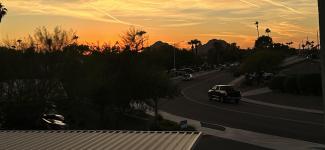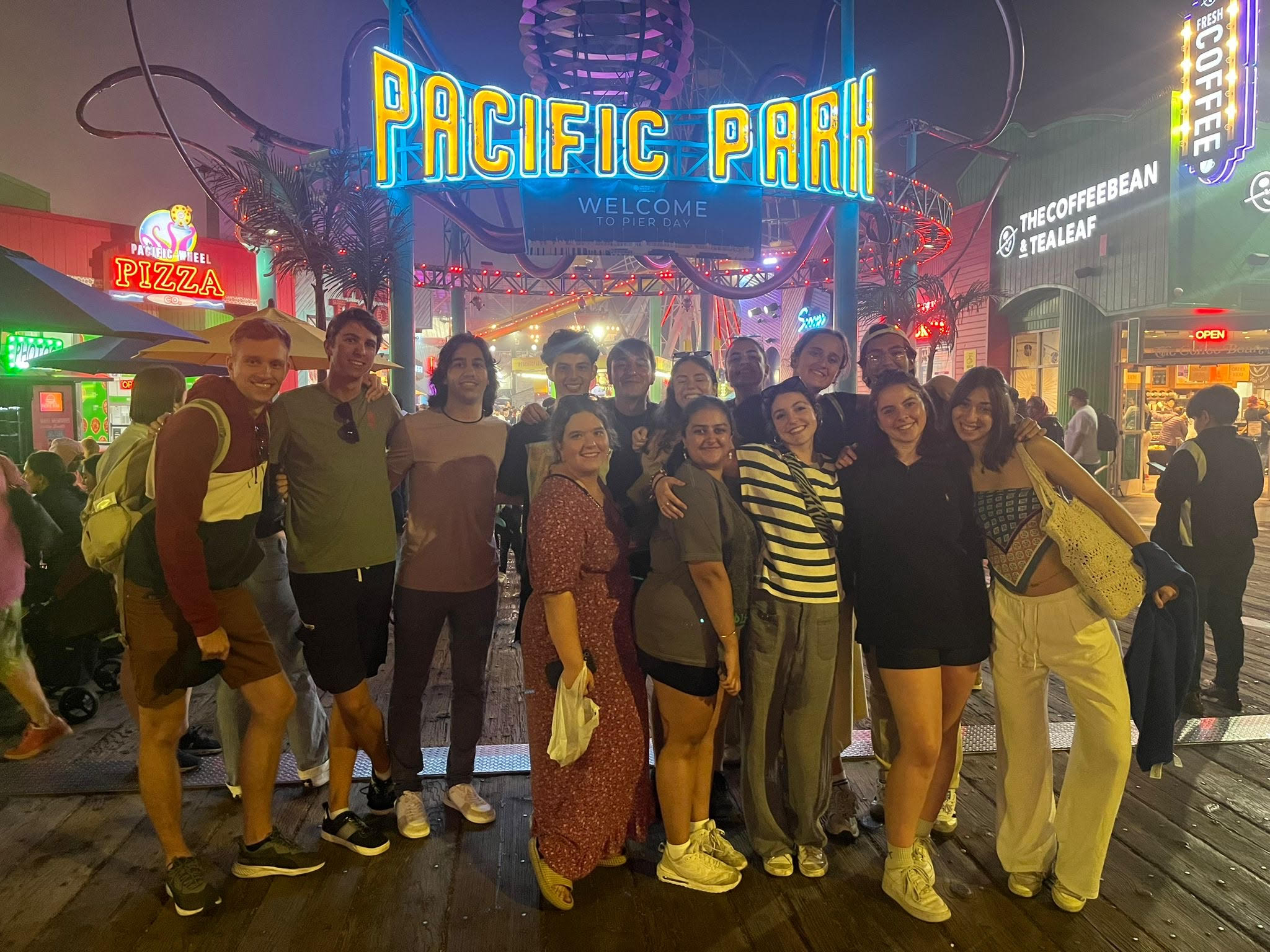Are you a UBC undergrad thinking about going on a student exchange? It can be a daunting decision. You might wonder, what's it like spending a year or a semester in another country? How can you prepare? And how do you handle it when things go sideways? We talked with a group of UBC Global Ambassadors who went on a Go Global program exchange. They spoke with us candidly, sharing their personal impressions, fears and misgivings, best memories, top tips and advice. (This story is part of a series of Global Exchange Insider interviews.)
Meet Alwalid (AJ) Aldaker. He is in his final year of a UBC Bachelor of Science. AJ grew up in Jeddah, Saudi Arabia and Vancouver, BC, but is originally from Damascus, Syria.
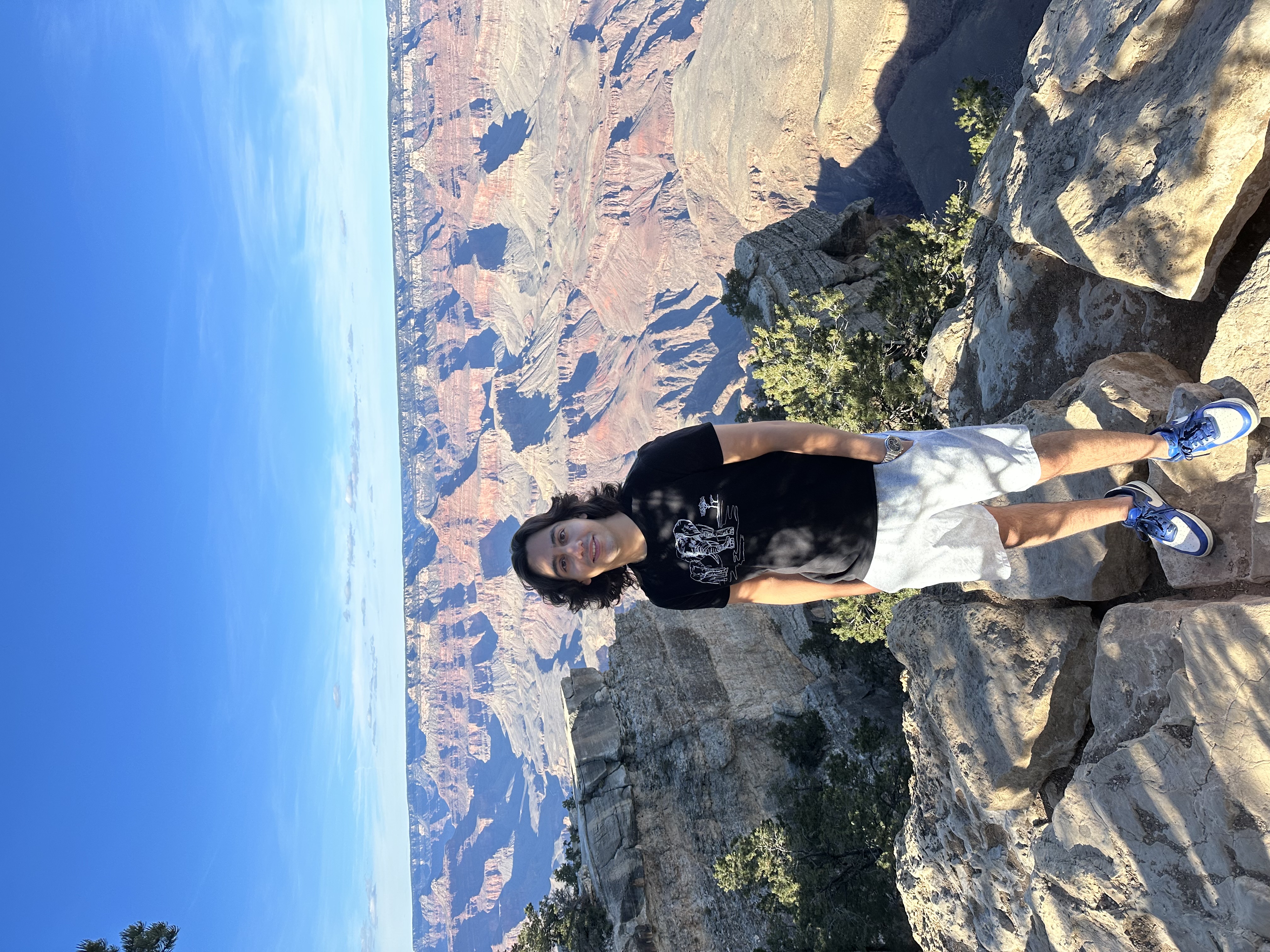
Alwalid (AJ) Aldaker at the Grand Canyon in Arizona: he planned a road trip as part of his student exchange (photo: Alwalid Aldaker)
Before you go
Why did you pick Arizona State University (ASU) for your exchange? How did you hear about it?
I moved to North America from the Middle East back in 2017. From then until I started planning my exchange, I felt like I hadn’t explored much of North America at all. The furthest south I’d been was Seattle, and within Canada, I’d only briefly visited Montreal and Toronto. Before thinking about going further abroad—for example, Europe—I felt it was important to explore the place I had moved to.
I began by researching partner universities listed on the Go Global website, focusing specifically on options within the United States and North America. I came across several universities I’d already heard of through social media, including the University of California (UC), University of Hawa’ii and ASU. Other options included the University of Washington, but it felt too close to home. My focus narrowed down to UC and ASU. Ultimately, I chose ASU for several reasons: location, weather, course offerings and its social reputation.
I wanted a location I could drive to, so I could begin and end my exchange journey with a road trip. Having a car during my exchange, especially in the U.S., made exploring so much easier. I loved how distinct each state felt: even though they’re close in proximity, every state has its own unique “flavor.”
The weather in Arizona was another big factor. It’s hot, but not humid, which is my ideal combination. Growing up with hot weather, I missed it and knew I’d enjoy having it again.
Academically, ASU was a perfect fit. It has 17 different colleges offering a wide variety of courses, including ones that aligned with my interests in healthcare. Learning about the U.S. healthcare system was a great opportunity after my co-op at BC Cancer. I was fascinated by how ASU organizes its programs—each college focuses on very specific majors, such as Healthcare Administration and Policy. Another plus was that ASU uses the Canvas system, which is the same as UBC, so it was one less thing I had to adjust to.
Lastly, ASU’s vibrant social reputation really appealed to me. I’d seen a lot about it on social media—big football games, start-of-year events, concerts—showing how lively and active the campus is. I wanted to experience a place with that kind of energy during my exchange. I also knew ASU was known for being outgoing and friendly, making it easier to meet like-minded people, including other exchange students.
I chose to go on exchange because I wanted to experience a full-term learning environment in a completely new setting. After a year of working in my co-op position, I was ready for a change before coming back to UBC, and exchange seemed like the perfect opportunity for that. I first heard about Go Global through word of mouth, and after that, it became my goal.
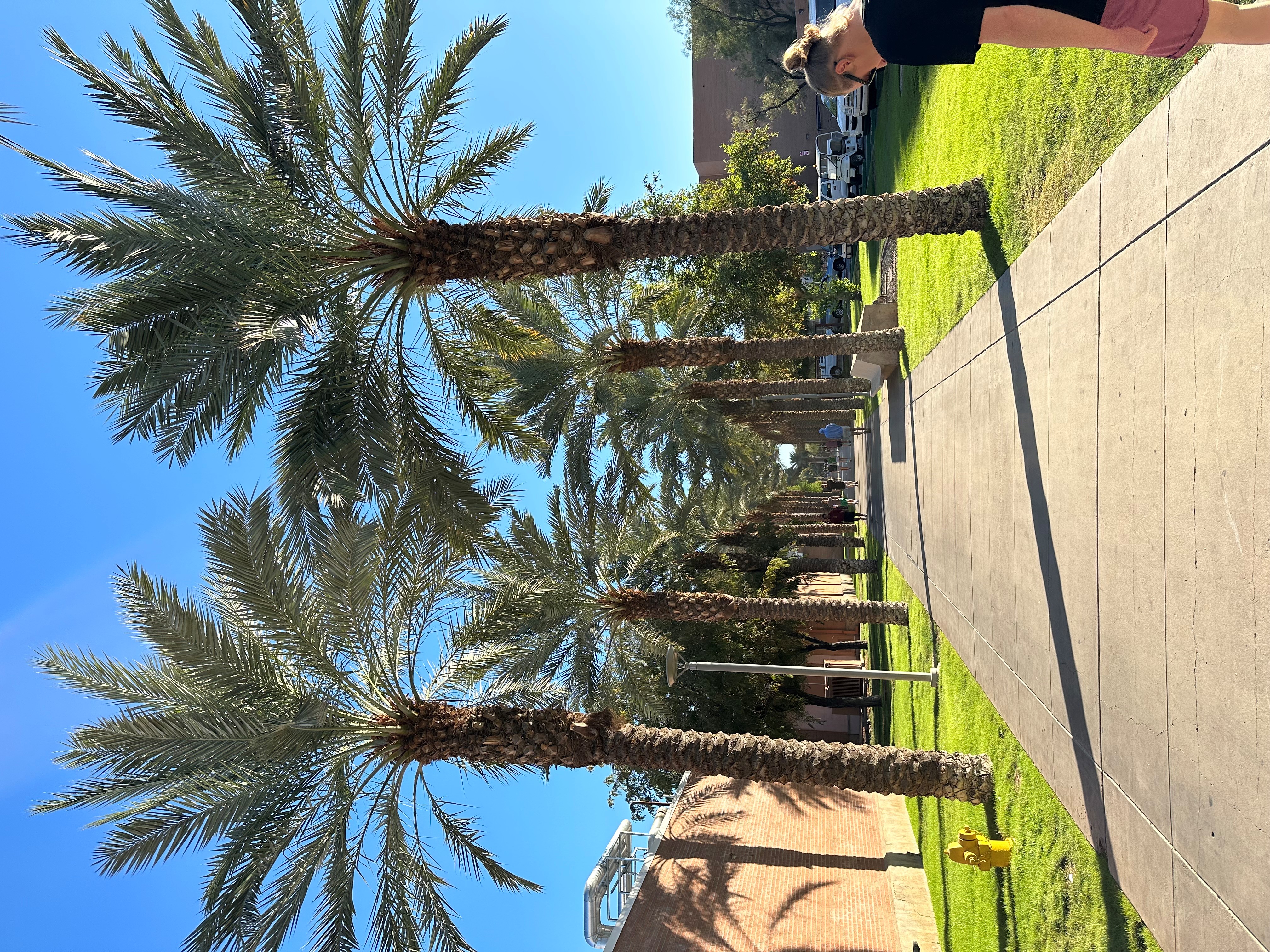
The Palm Walk at Arizona State University (photo: Alwalid Aldaker)
What was the application process like? Any tips?
The process was straightforward: Rank your top three schools, write a brief reflection on why you want to go and develop a preliminary study plan. I recommend thoroughly exploring the course catalog for your top choice; it can save a lot of time when it comes to enrolling at the partner university and might increase your chances of getting a spot in popular classes. For the reflection, write honestly and from the heart; the advisors want to understand your personal motivation for going on exchange.
How did you prepare? Anything to be aware of? (travel, cultural differences, classes, etc.)
Ever since my first year at UBC, I’ve been excited about going on exchange, so I was mentally prepared for it from the start. However, the real challenge came with the logistics. There’s so much to consider—from choosing where to go to securing housing at the partner university. Thankfully, Go Global advising was incredibly helpful. My advisor assisted me in ranking universities based on my priorities, and the Canvas pre-departure page provided all the essential resources I needed to prepare.
ASU is one of the largest universities in the U.S., so there’s a wealth of information available about campus life, academics and Arizona itself. Before my trip, I relied on Reddit for firsthand experiences from ASU students, followed ASU and ASU Global’s Instagram pages, and used maps to plan my road trip from Vancouver to Arizona (a 30-hour drive with planned stops in Oregon, Nevada and a must-see stop in Vegas!).
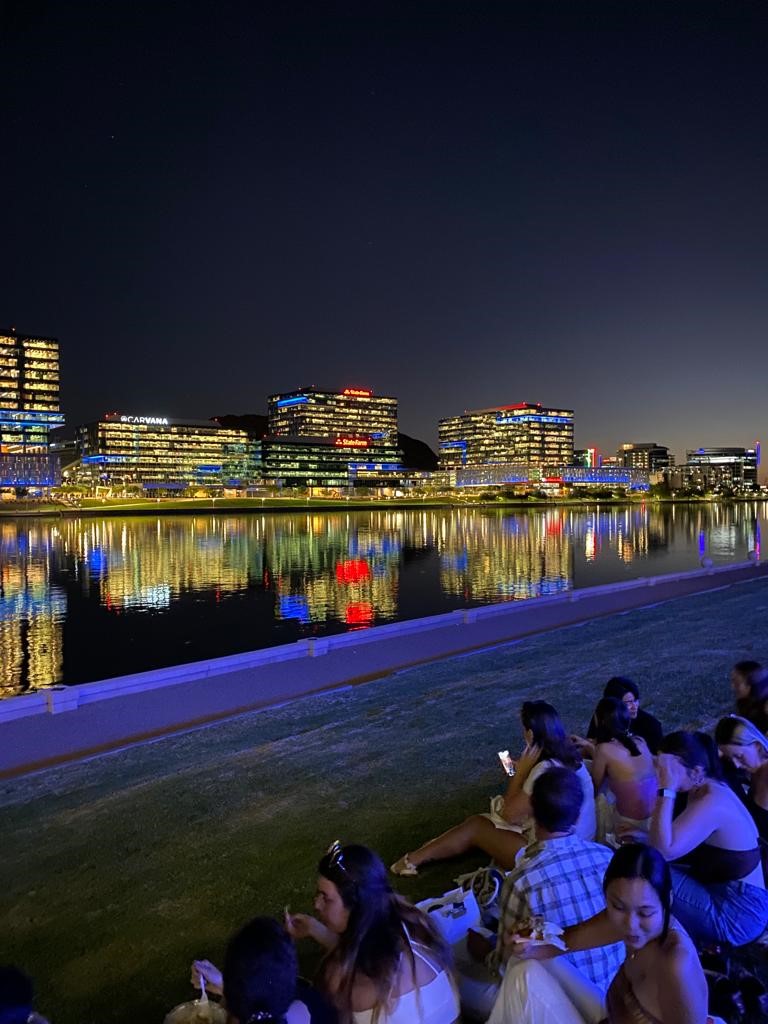
Tempe Town Lake near ASU (photo: Alwalid Aldaker)
What worries did you have beforehand? How did you overcome the anxiety?
The worries start creeping in as the departure date for the exchange gets closer. You start having that “is it all worth it?” feeling, especially as obstacles come up. The short answer is: Yes, it absolutely is.
For me, the main obstacle—and my biggest worry—was finding a place to live. ASU informed students that on-campus housing wasn’t guaranteed, but they did provide resources for finding accommodations. The challenge was that, since I was only going for a four-month term, signing a year-long lease came with the risk of being unable to find someone to take over when I had to leave. I initially chose a homestay arrangement, but when I arrived, it wasn’t what I expected. I knew I couldn’t stay there for the duration of my exchange.
That was when the peak of my worrying hit. I had to start looking for a new place on the spot, one that offered a short-term lease. Thankfully, I had arrived two weeks before orientation, which gave me the time I needed to search. My family was also a huge support during this stressful period. My sister even came out to help me look for a place, which made a big difference. Overcoming my anxiety wasn’t easy, but staying busy helped. I didn’t have much time to dwell on the stress because I was fully focused on finding a place, day and night. I kept reminding myself that after putting in so much time, energy, effort and money, I couldn’t just turn back.
I eventually found a place, but had to wait a week to hear back about the application. During that time, I drove to California to stay with family and tried to stay patient. Luckily, I got the place a day before orientation, and from there, my exchange journey truly began.
During the experience
How was the overall experience? What did you learn?
It’s hard to capture the overall experience in words, but in short, I would regret it deeply if I hadn’t gone. It was, without a doubt, one of the main highlights of my undergraduate degree. I came away with so many incredible stories to tell, met people from all over the world, and experienced living independently in a completely new environment.
It’s in those not-normal, out-of-the-ordinary daily situations where you learn the most about yourself. The biggest lessons often come from the unexpected. You can’t always predict how things will turn out, but that’s where the growth happens. The unexpected doesn’t always have to be negative, either. Sometimes, it’s those last-minute plans that turn into the best experiences or the way things just fall into place perfectly, even if it feels chaotic at first. I like to call it “organized chaos.”
One of the most important things I learned is that the experience is what you make of it. The effort you put in determines what you get out of it. For me, that meant being honest with myself in different situations and taking time to self-reflect. I would often ask myself: Am I trying my best? Am I choosing to see things in a positive way? Recognizing patterns in your thought process is key; and once you do, you can adapt and grow.
Being fully independent in a new place, surrounded by new people, forces you to confront these things head-on. My exchange wasn’t without its ups and downs, but every moment—good or bad—helped shape the experience. Looking back, I wouldn’t trade it for anything.
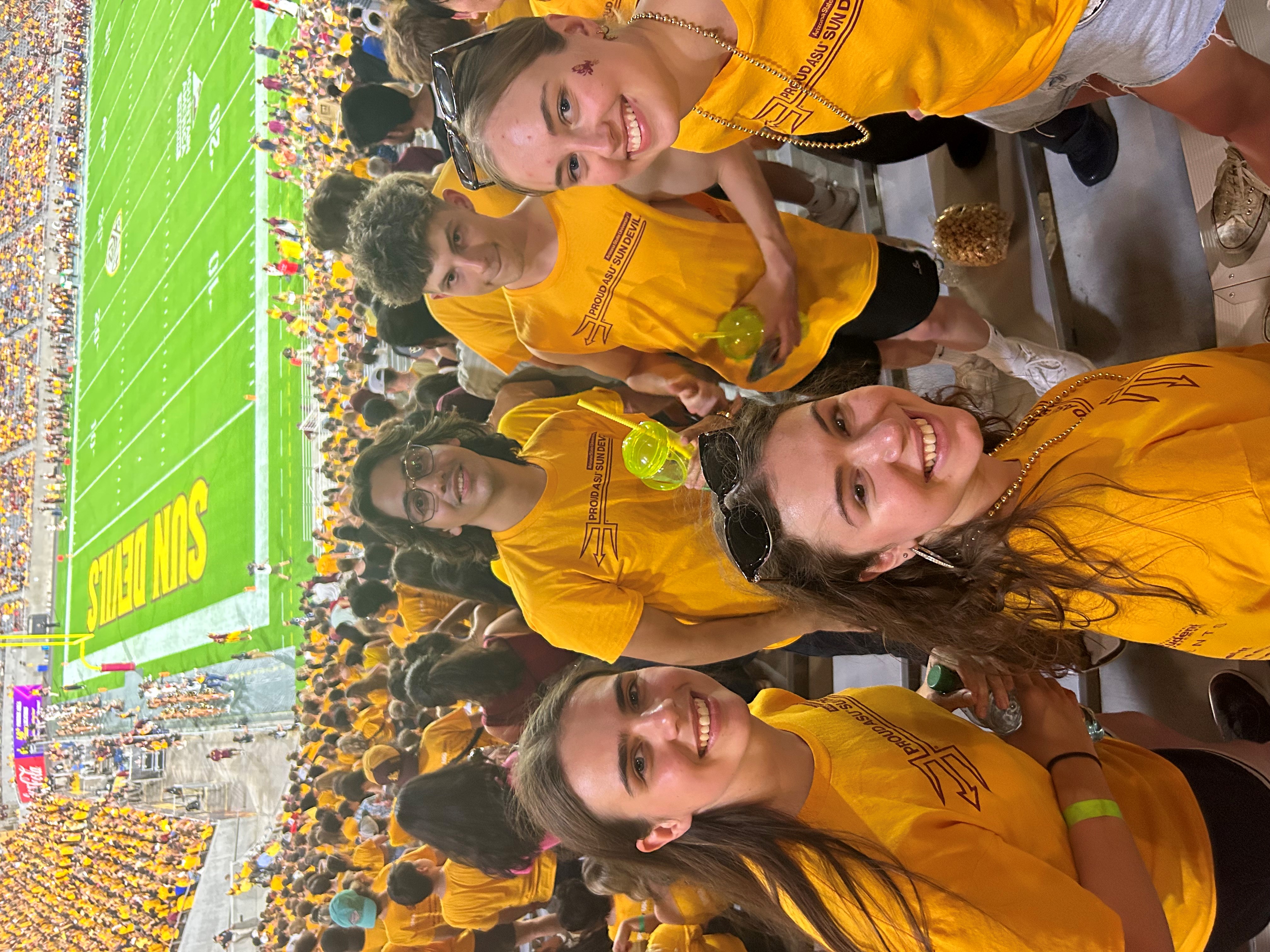
AJ Aldaker and friends at the ASU football game (photo: Alwalid Aldaker)
“It’s in those not-normal, out-of-the-ordinary daily situations where you learn the most about yourself. The biggest lessons often come from the unexpected.”
If you could change something or do it differently, what would you change or do?
If I could change one thing, it would be to extend my exchange from one semester to a full year. Living alone for the first time taught me to become fully independent, and having an entire year to soak in the experience would have been ideal.
How were the academics?
ASU offered courses I couldn’t find at UBC, such as Leadership and Professionalism, Service Learning and Healthcare Management, with professors who were sometimes UBC alumni. These classes had a different approach, including guest lectures from CEOs of healthcare systems, which gave us insight into the contrasting healthcare structures between Canada and the U.S. A typical day at ASU was like a regular student’s day, but with the added excitement of exploring a new city alongside others who shared the same sense of adventure.
How was the social aspect?
The U.S. is similar to Canada but has distinct differences, too. I found people at ASU to be especially outgoing, and making friends—both locals and fellow exchange students—was easy.
On the first official day at ASU, we had an orientation for exchange students, followed by a welcome event where we joined all the incoming first-year students. It was similar to UBC’s welcome event at Thunderbird Stadium—very lively and full of energy. The event featured fireworks, a speech by the university president and even a performance by a famous rapper. It was an incredibly exciting welcome and a fantastic way to kick off the term while meeting all the other exchange students! There were about 100 of us, and we all took the time to introduce ourselves to one another, which helped me make a lot of friends right from the start.
In terms of clubs, I joined the Tempe AMSA (American Medical School Association) club. I wanted to learn more about medical schools in the United States and meet some of the guest doctors who came to speak. It was also a great way to connect with local students who shared similar interests.
Sports were a big part of my social life on exchange. I play soccer and basketball, and I wanted to keep that going on campus. Even though my friends and I missed the sign-up deadline for intramurals, we were still eager to play. We found pickup games at the fitness center and played with whomever was there. The fitness centre itself was a fantastic space—it even had an outdoor swimming pool, which became one of our favourite hangout spots. They also hosted an international student BBQ there, which was another fun way to get to know other students.
Meeting people on campus was incredibly easy, whether it was joining someone at their lunch table, participating in clubs, playing sports at the fitness center, or through my exchange group, which became the closest community for me.
After the experience
Would you recommend this experience to others? What can they look forward to?
Without a doubt, I would recommend the exchange experience to other students. They can look forward to the thrill of living somewhere new, meeting people from all over and forming lasting memories. Moving abroad to study not only adds a new academic perspective, but also brings personal growth in ways you can’t fully anticipate until you’re there.
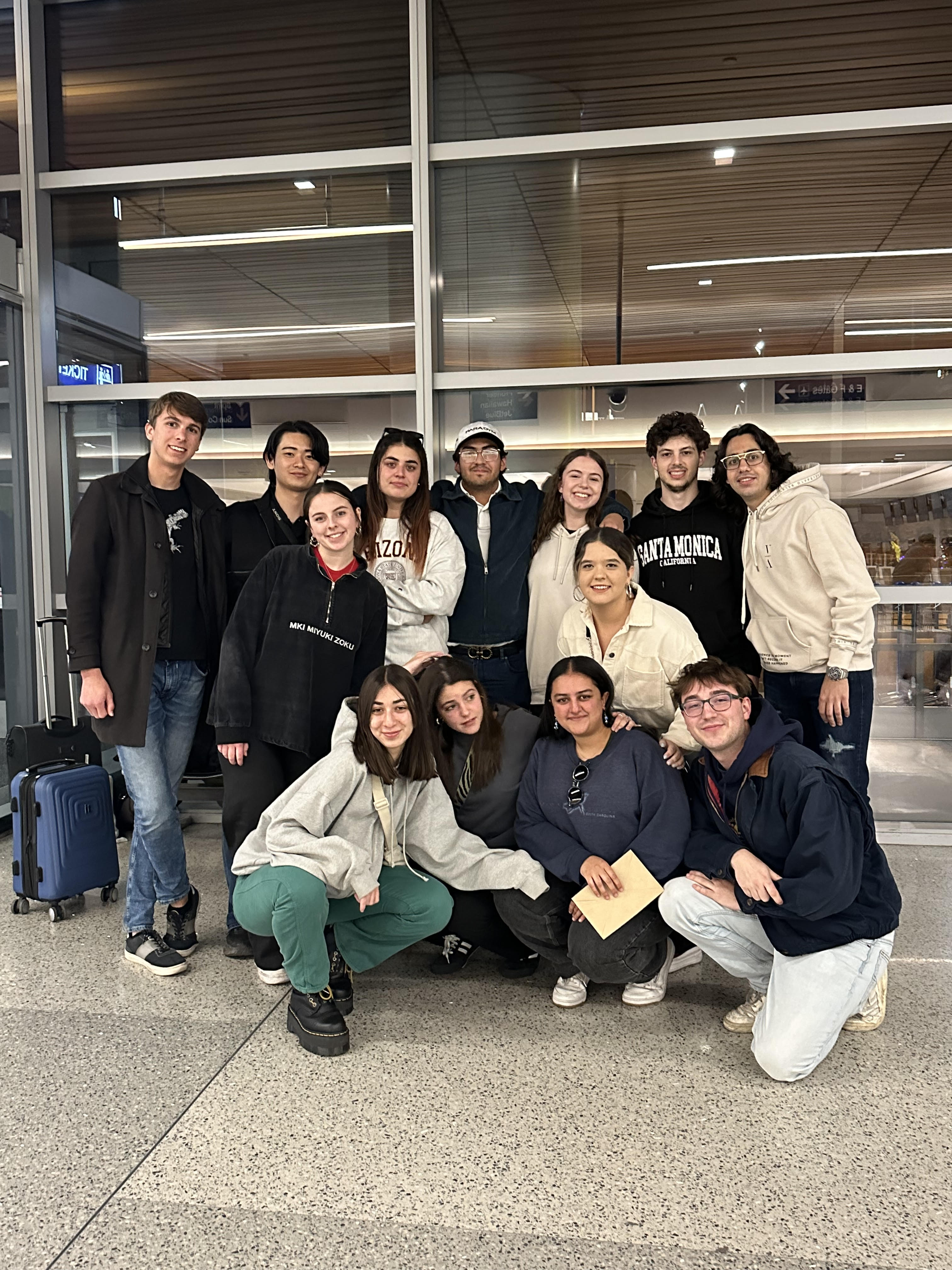
AJ Aldaker's ASU friends came to say good-bye at the airport when it was time to head home (photo: Alwalid Aldaker)
What was the impact on your academic and personal development?
ASU is a great school academically. I really appreciated the opportunity to take a wide variety of courses that complemented my co-op placement and aligned with my future academic goals. I spent a significant amount of time carefully narrowing down my courses. Ultimately, I chose Leadership & Professionalism, Health Care Management, Service Learning and Genetics.
I focused on selecting courses that I wouldn’t normally be eligible to take at UBC based on my major, or ones that aren’t offered at UBC, to gain a fresh perspective. The Leadership & Professionalism course, taught by a UBC alumnus who is now a chiropractor, emphasized the importance of being a leader—particularly in healthcare. The Health Care Management course explored the structure of healthcare facilities in the U.S., which was fascinating to compare with what I had learned about the Canadian system during my co-op.
In the Service Learning course, I had to reach out to different organizations to offer my services, which helped me gain a better understanding of what I want to do in the future. I ended up matching with a hospice, which was an incredibly meaningful experience. Lastly, I took Genetics as part of my Biology major requirements.
In terms of personal development, exchange brings a lot of personal reflection and growth. Being in a completely new environment gave me the chance to act and respond in ways that were outside my usual day-to-day patterns. It’s during times of change that I find I learn the most about myself. I became more independent. But more importantly, I developed a greater sense of self-awareness. Learning to hold myself accountable and being mindful of my actions were major takeaways from the experience. Navigating challenges—such as finding housing and balancing coursework with social and personal commitment—helped me build resilience and improve my time management skills.
Engaging with people from diverse backgrounds also enhanced my ability to communicate across cultures, giving me a broader perspective that will influence both my personal and professional life. The experience taught me to adapt to unfamiliar situations quickly and helped me develop confidence in my ability to handle unexpected challenges.
Read more Go Global student stories.
